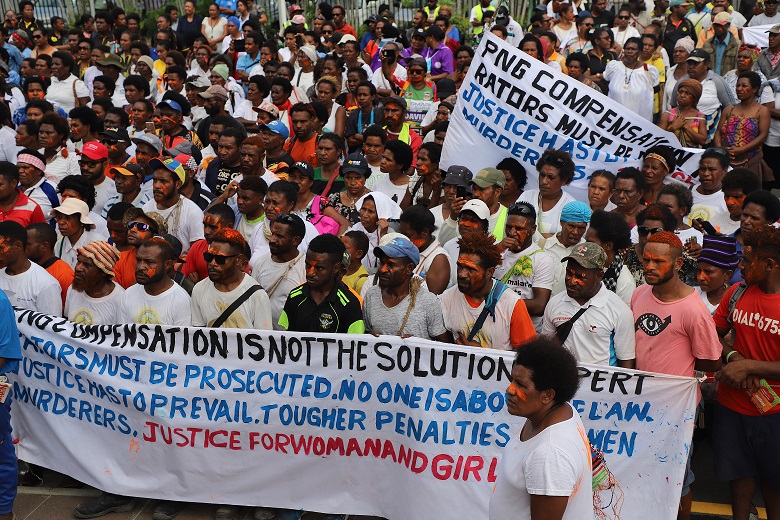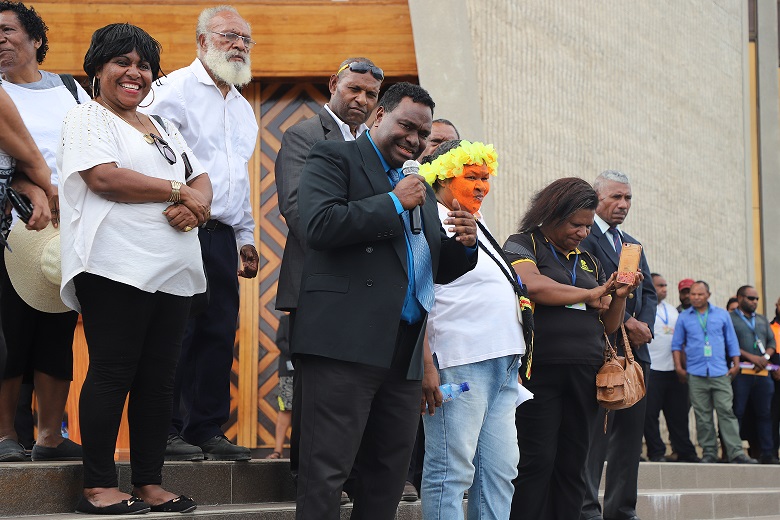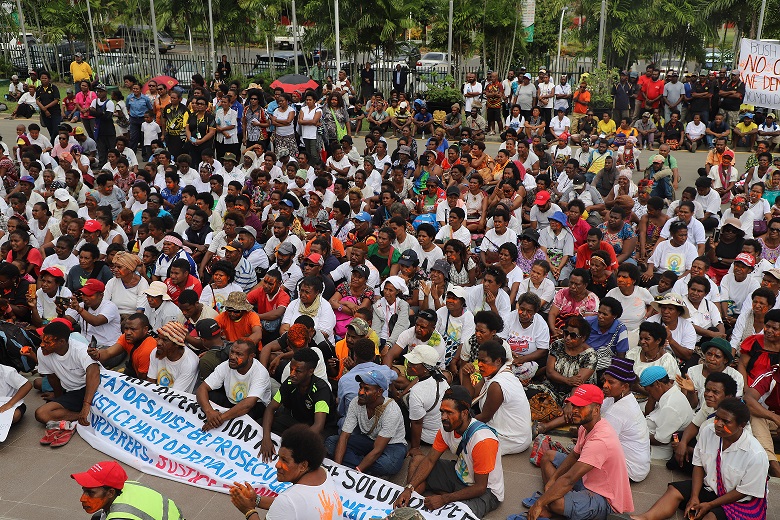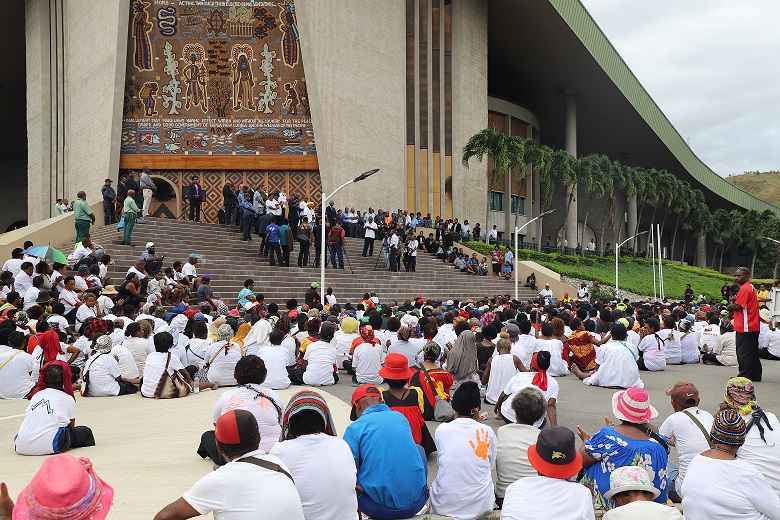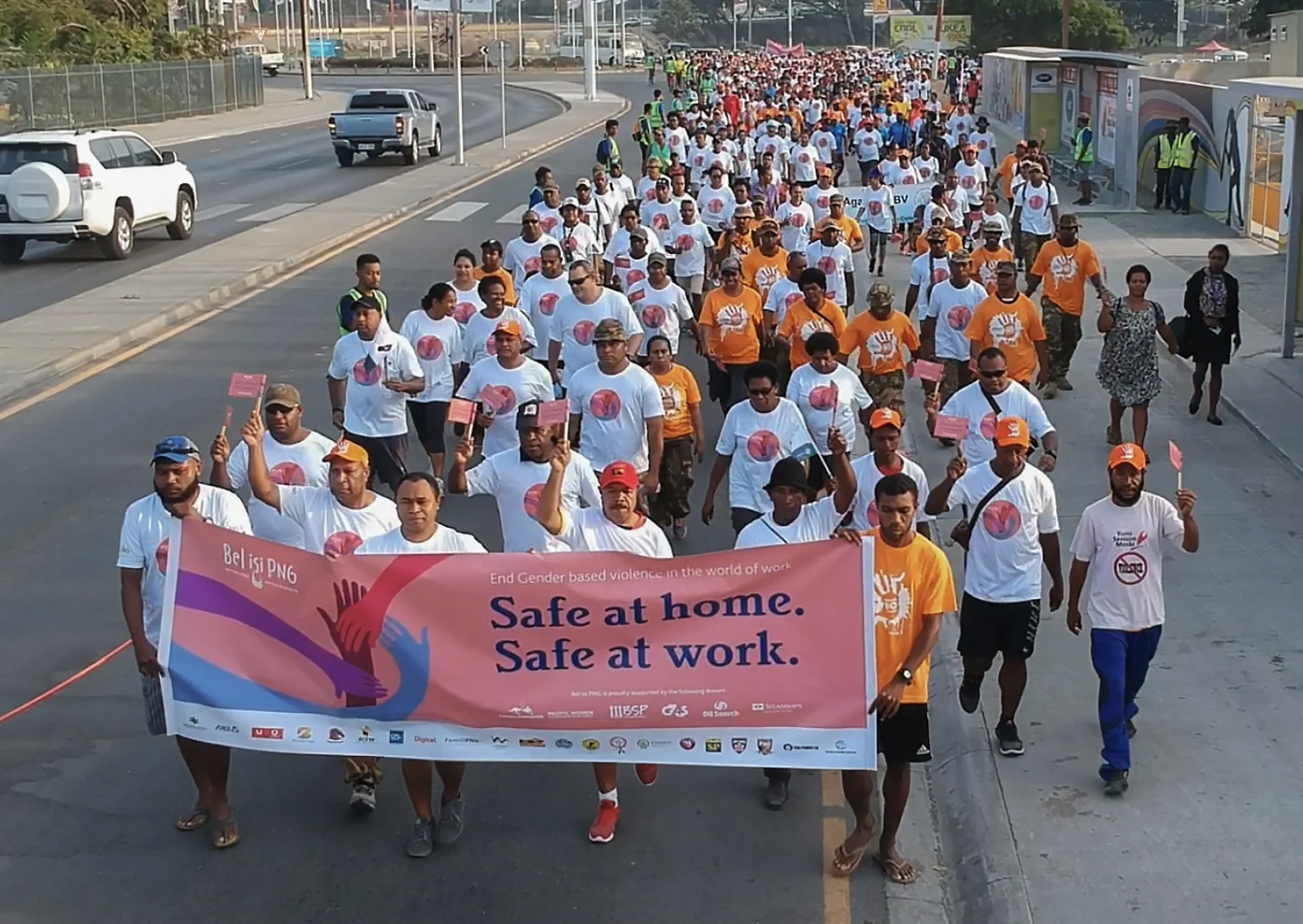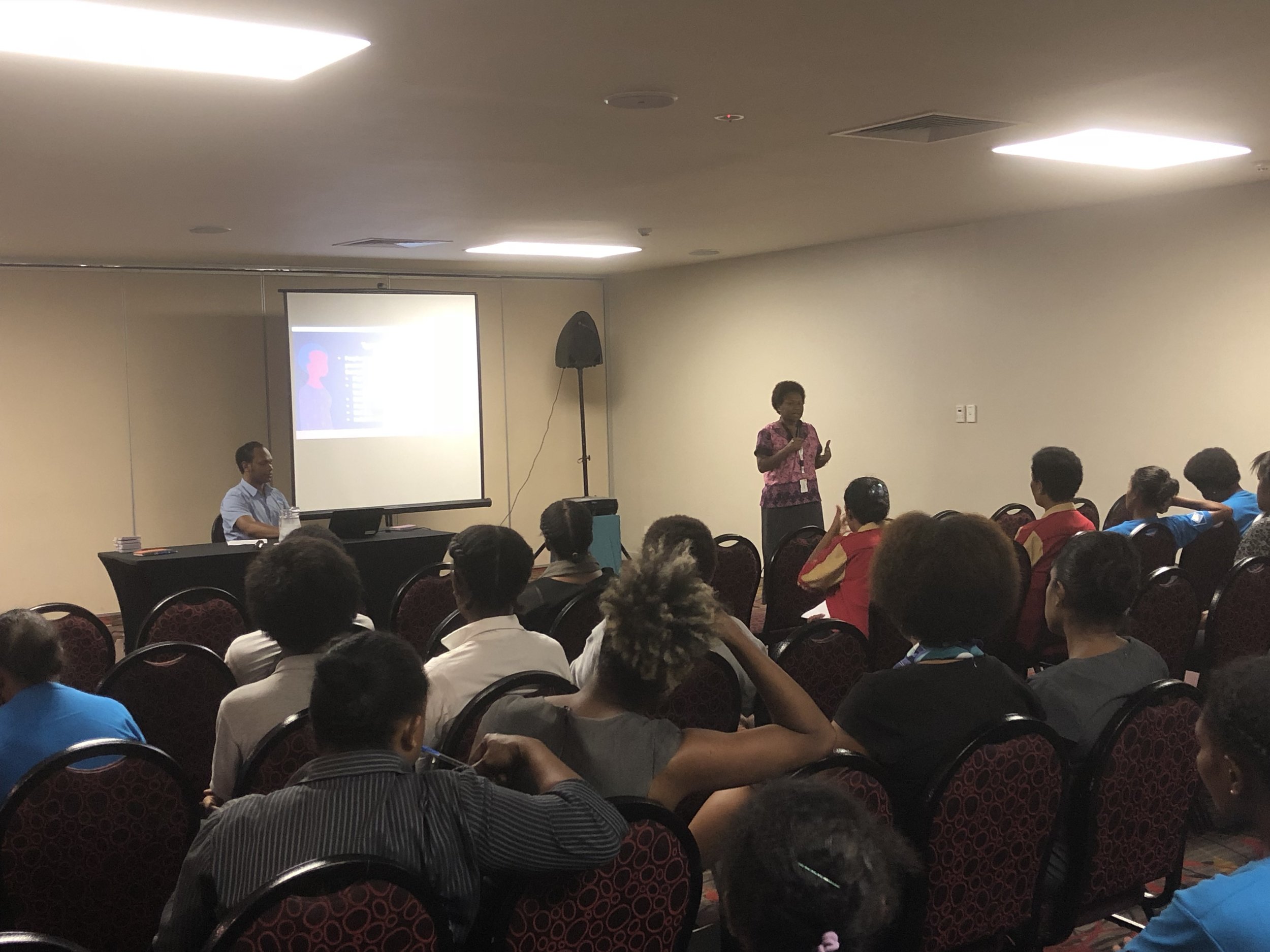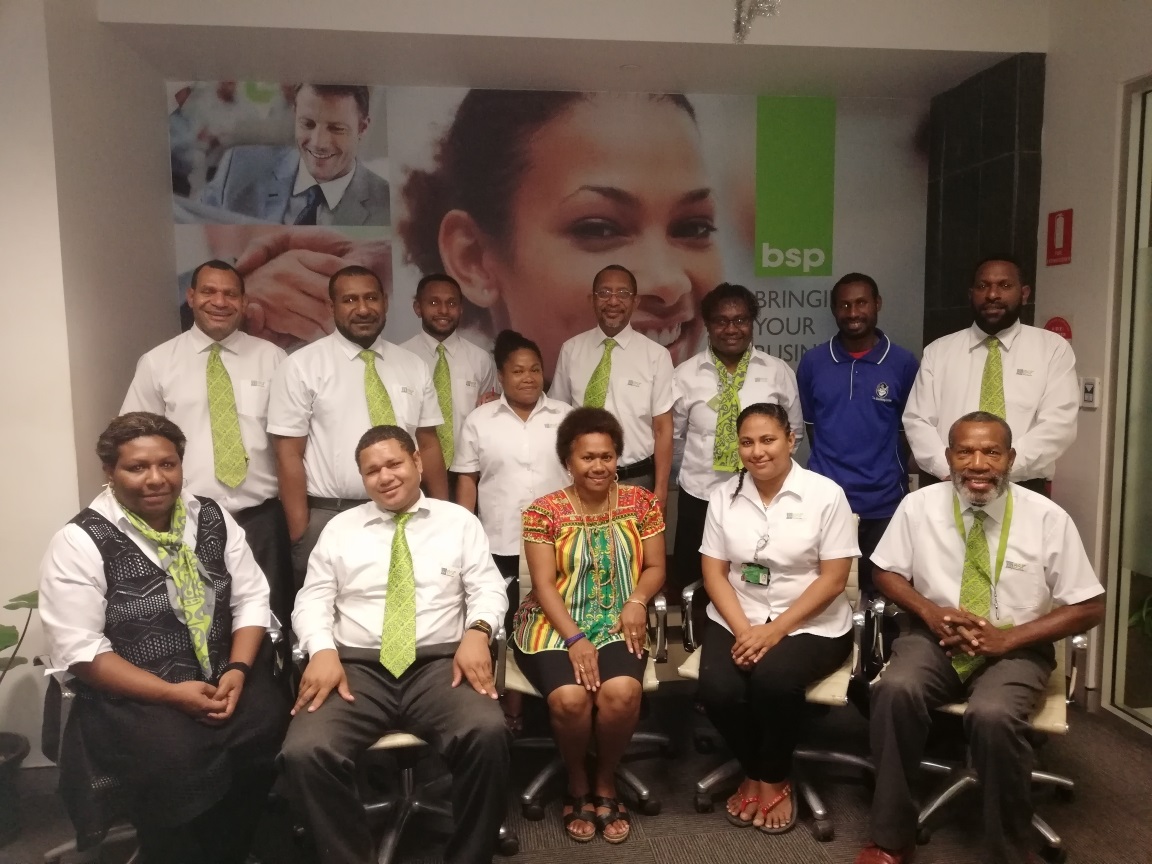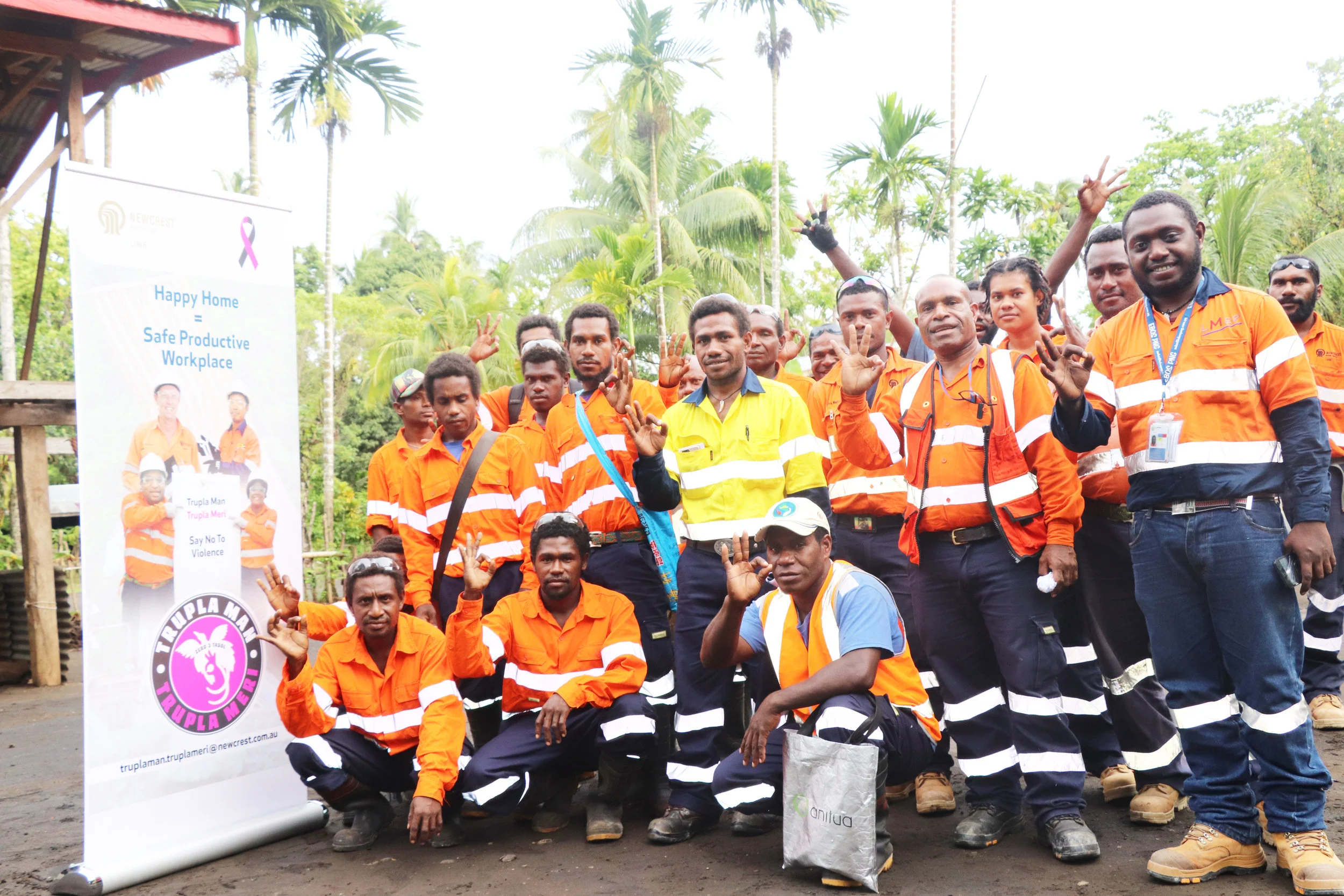March 8th was International Women Day – a time to celebrate our mothers, sisters, daughters, grandmothers and aunts and reflect on what we can all do to protect their rights.
In Papua New Guinea, like many other parts of the world, much remains to be done. In PNG some studies suggest that 2 out of 3 women and many men will experience some form of physical or sexual abuse in their lifetime.
But the good news is that progress is being made by different partners. Building on many years of work by a range of women’s organisations including the Business Coalition for Women, non-government organisations, donor partners and the PNG Government, the private sector is stepping up to take a leadership role in addressing this development challenge.
Nine major organisations have signed onto the Bel isi PNG (peaceful PNG) initiative to date: ANZ, Australian High Commission, Bank of South Pacific (BSP), Brian Bell, Digicel, ExxonMobil, Oil Search, Steamships Company and the World Bank Group. Under the scheme, each pays a fee that provides expert advice and tools on promoting awareness and actions against domestic violence while at the same time enabling staff to access care and support.
Support may involve legal advice, or medical assistance; it may involve relationship counselling or a police intervention. Sometimes it will mean applying for a protection order, devising a security plan or taking refuge in a safe house. If a person goes to Bel isi PNG a case worker will listen to their situation, work with them on the options available, and then support them through a plan of action that works for them and keeps them safe.
“I am so amazed with this fantastic service,” says an HR manager at one of the subscribing businesses, after Bel isi PNG provided a safe house and other “invaluable assistance” to a “shy colleague who has kept her situation to herself for goodness knows how long … It is definitely making a difference to us.”
And it may be making a difference for employers as well. Violence against women is after all, not just a social issue, it has long been a big problem for business.
Robin Fleming, BSP’s Group Chief Executive Officer, and Co-Chair of the Bel isi PNG Steering Committee said that ‘BSP remains committed to providing a safer and more supportive organisational climate for survivors of family and sexual violence’.
‘We acknowledge that the impacts of family and sexual violence are linked to the productivity and performance of our staff and that staff genuinely struggle to survive and continue providing for their families. We therefore strongly feel that it is our moral obligation to provide support to our staff who are survivors of family and sexual violence and based on this belief is where our search for a solution started some years ago. We have now also seen the positive impacts of the assistance provided by Bel isi PNG. Our staff are able to return to work without the burden of having to deal with issues in order to protect themselves and their families from further violence and abuse.’
Very much a product of private sector initiative, Bel isi PNG began with donations – a building from Bank of South Pacific to be used as a safe house and an office space from Steamships Trading Co for a case management centre. Oil Search Foundation is providing, at no cost all program management. G4S is offering 24-hour free transport from unsafe locations, while Brian Bell, a local homeware store, provided furniture and cleaning supplies and PNG Power all of the electricity.
The project would not be possible without strong public-sector support, such as that provided by the Australian Government’s Pacific Women Shaping Pacific Development program, the National Capital District Commission and the Governor of the National Capital District, Femili PNG, Business Coalition for Women and the Family and Sexual Violence Action Committee.
While the initiative is providing case management and safe house services, other work includes leadership forums with company executive leaders to help change attitudes to family and sexual violence and support capacity building with and by the broader sector agencies. Not only do companies address a business interest, they contribute directly to addressing family and sexual violence for the entire community.
In short, it’s a prime example of partnership.
As Peter Botten, Managing Director of Oil Search, recently put it, Bel isi PNG is “proof that when governments and NGOs can leverage private sector support the outcomes are better for everyone. I believe what we are doing here in PNG is a model for others.ng up to take a leadership role in addressing this development challenge.
Nine major organisations have signed onto the Bel isi PNG (peaceful PNG) initiative to date: ANZ, Australian High Commission, Bank of South Pacific (BSP), Brian Bell, Digicel, ExxonMobil, Oil Search, Steamships Company and the World Bank Group. Under the scheme, each pays a fee that provides expert advice and tools on promoting awareness and actions against domestic violence while at the same time enabling staff to access care and support.
Support may involve legal advice, or medical assistance; it may involve relationship counselling or a police intervention. Sometimes it will mean applying for a protection order, devising a security plan or taking refuge in a safe house. If a person goes to Bel isi PNG a case worker will listen to their situation, work with them on the options available, and then support them through a plan of action that works for them and keeps them safe.
“I am so amazed with this fantastic service,” says an HR manager at one of the subscribing businesses, after Bel isi PNG provided a safe house and other “invaluable assistance” to a “shy colleague who has kept her situation to herself for goodness knows how long … It is definitely making a difference to us.”
And it may be making a difference for employers as well. Violence against women is after all, not just a social issue, it has long been a big problem for business.
Robin Fleming, BSP’s Group Chief Executive Officer, and Co-Chair of the Bel isi PNG Steering Committee said that ‘BSP remains committed to providing a safer and more supportive organisational climate for survivors of family and sexual violence’.
‘We feel strongly feel that it is our moral obligation to provide support to those who are survivors of family and sexual violence and based on this belief is where our search for a solution started some years ago. We have now also seen the positive impacts of the assistance provided by Bel isi PNG. Our staff can return to work without the burden of having to deal with issues to protect themselves and their families from further violence and abuse’
Very much a product of private sector initiative, Bel isi PNG began with donations – a building from Bank of South Pacific to be used as a safe house and an office space from Steamships Trading Co for a case management centre. Oil Search Foundation is providing, at no cost all program management. G4S is offering 24-hour free transport from unsafe locations, while Brian Bell, a local homeware store, provided furniture and cleaning supplies and PNG Power all of the electricity.
The project would not be possible without strong public-sector support, such as that provided by the Australian Government’s Pacific Women Shaping Pacific Development program, the National Capital District Commission and the Governor of the National Capital District, Femili PNG, Business Coalition for Women and the Family and Sexual Violence Action Committee.
While the initiative is providing case management and safe house services, other work includes leadership forums with company executive leaders to help change attitudes to family and sexual violence and support capacity building with and by the broader sector agencies. Not only do companies address a business interest, they contribute directly to addressing family and sexual violence for the entire community.
In short, it’s a prime example of partnership.
As Peter Botten, Managing Director of Oil Search, recently put it, Bel isi PNG is “proof that when governments and NGOs can leverage private sector support the outcomes are better for everyone. I believe what we are doing here in PNG is a model for others.
